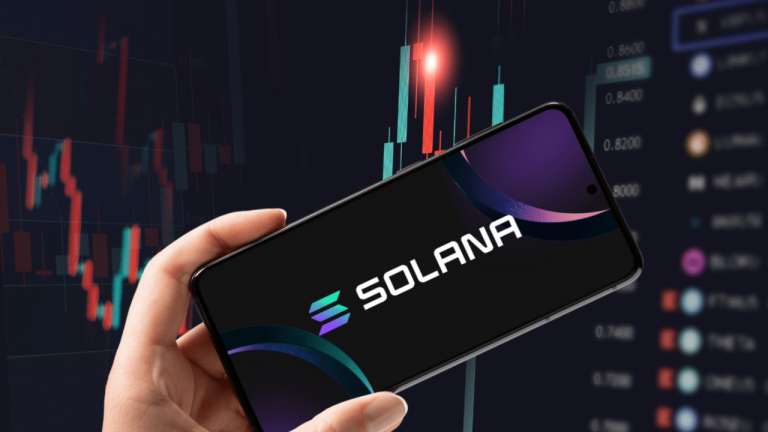How Tech Giants Are Investing in Web3: Meta, Google, and More
Web3—the next evolution of the internet built on decentralized technologies—is no longer a fringe concept. It’s now a core area of innovation and investment for some of the world’s largest tech companies. Meta, Google, Microsoft, and others are moving beyond experimentation and into full-scale involvement in blockchain, decentralized identity, NFTs, and digital finance infrastructure.
What was once seen as a movement led by crypto-native startups is now being shaped, accelerated, and even challenged by the same tech giants that defined the Web2 era. In this article, we’ll take a clear, in-depth look at how these companies are investing in Web3 and what it means for the future of the internet.
What Is Web3?
Before diving into corporate strategies, it’s important to understand what Web3 means. At its core, Web3 refers to an internet that is decentralized, user-owned, and powered by blockchain technologies. Unlike Web2, where data is owned and controlled by large corporations, Web3 aims to give control back to individuals through open protocols and distributed networks.
Key components of Web3 include:
- Blockchain-based applications (dApps)
- Decentralized finance (DeFi)
- Non-fungible tokens (NFTs)
- Decentralized autonomous organizations (DAOs)
- User-controlled digital identity
The promise of Web3 is freedom, transparency, and true digital ownership—and it’s this promise that’s attracting the attention of major tech players.
Meta (formerly Facebook): Betting Big on the Metaverse
Few companies have made their Web3 intentions as clear as Meta. In 2021, Facebook rebranded itself as Meta, signaling its long-term commitment to building the Metaverse—a 3D, immersive version of the internet that relies on blockchain infrastructure, digital assets, and decentralized economies.
Key Investments and Moves:
- Meta Quest VR Devices: The company has invested billions into virtual reality hardware through its Oculus (now Meta Quest) product line.
- Digital Wallet – Novi: Though later shut down, Novi was Meta’s attempt at a crypto wallet, built to integrate with Facebook and WhatsApp.
- NFT Integration: Meta has experimented with allowing users to display and trade NFTs on Facebook and Instagram.
- Metaverse Standards Forum: Meta joined forces with other companies to push for open standards in building the Metaverse, including blockchain interoperability.
Why It Matters:
Meta’s vision of a fully immersive online social experience heavily overlaps with the values and tools of Web3. While critics question whether Meta’s centralized approach aligns with Web3 ideals, its scale and investment are undeniable.
Google (Alphabet): Building Web3 Infrastructure Behind the Scenes
Google has taken a more cautious and infrastructure-focused approach to Web3. Rather than launching consumer-facing blockchain apps, Google is enabling developers, enterprises, and platforms to build on Web3 through cloud services, partnerships, and data tools.
Key Investments and Moves:
- Blockchain Node Engine: Google Cloud launched this service to help developers deploy and manage blockchain nodes, starting with Ethereum.
- Web3 Team at Google Cloud: A dedicated Web3 division was formed to provide backend tools for developers building dApps.
- Partnerships: Google has partnered with projects like Solana, Tezos, and Hedera to provide data indexing and infrastructure.
- BigQuery Blockchain Datasets: Google Cloud supports public blockchain datasets (Ethereum, Bitcoin, Polygon, and others), giving analysts access to structured blockchain data.
Why It Matters:
Google’s strength lies in enabling other builders. While it hasn’t launched a crypto token or NFT marketplace, Google is quietly becoming a backbone for Web3 developers. Its focus on infrastructure rather than direct competition may make it a key player in the years ahead.
Microsoft: Focused on Identity and Enterprise Blockchain
Microsoft has taken a pragmatic and enterprise-driven approach to Web3. Instead of retail crypto services or NFT platforms, it has focused on blockchain for identity, supply chain, and corporate solutions.
Key Investments and Moves:
- Azure Blockchain Services: Although phased out, Azure played a role in early blockchain experimentation by enterprises.
- Decentralized Identity (DID): Microsoft has developed decentralized identity standards through projects like ION on the Bitcoin blockchain.
- Gaming and NFTs: Through its acquisition of Activision Blizzard and investments in Xbox, Microsoft has explored NFT integration into gaming ecosystems.
- Enterprise Partnerships: Microsoft supports private blockchain use cases for companies in finance, logistics, and healthcare.
Why It Matters:
Microsoft is building tools that support the enterprise side of Web3, including identity, security, and compliance. Its commitment to decentralized identity is particularly relevant as Web3 grows beyond finance and into real-world use cases.
Amazon: A Dark Horse in Web3
While Amazon has been relatively quiet compared to Meta or Google, its moves in blockchain have grown more visible in recent months. In 2025, Amazon Web Services (AWS) remains the most widely used cloud infrastructure among Web3 developers.
Key Investments and Moves:
- Amazon Managed Blockchain: AWS offers tools for creating and managing blockchain networks, particularly with Hyperledger Fabric and Ethereum.
- NFT Marketplace (Speculated): Reports have circulated about Amazon developing its own NFT marketplace, focused on digital gaming assets and music.
- E-commerce and Blockchain Integration: Amazon is exploring ways to use blockchain to track supply chains, ensure authenticity, and manage digital goods.
Why It Matters:
If Amazon decides to fully enter the Web3 space—especially in e-commerce, gaming, or digital media—it could rapidly change the playing field. For now, AWS continues to be a behind-the-scenes powerhouse for Web3 startups and projects.
Apple: Playing the Long Game
Apple has not been as overtly involved in Web3 as some of its competitors, but it remains highly influential. Its App Store policies have had a direct impact on how NFT apps, crypto wallets, and blockchain games operate on iOS devices.
Key Investments and Moves:
- Tight App Store Restrictions: Apple requires apps using NFTs to go through in-app purchases, which take a 30 percent commission. This has slowed Web3 adoption on iOS.
- Hardware Security: Apple’s focus on privacy and secure elements makes iPhones potential tools for decentralized identity and crypto wallets.
- Speculations on AR/VR: With Apple Vision Pro, Apple may become a major Metaverse player, intersecting with blockchain-based virtual economies.
Why It Matters:
Apple’s influence lies in how it controls the gateway to mobile experiences. As Web3 expands into mainstream apps, Apple’s choices will shape user adoption—for better or worse.
Why Big Tech Is Betting on Web3
There are several reasons why major tech companies are investing heavily in Web3:
- Shift Toward Digital Ownership: As users demand more control over data, content, and digital assets, Web3 offers a viable path forward.
- Economic Opportunities: From transaction fees to token economies and creator monetization, Web3 unlocks new business models.
- Competitive Advantage: No company wants to miss the next big wave. Just like mobile and cloud computing defined the last decade, Web3 could shape the next.
- Cultural Shifts: Web3 aligns with movements around decentralization, transparency, and open technology—all themes that younger generations care about.
What Does This Mean for the Future?
The involvement of Meta, Google, Microsoft, and others is accelerating the development and adoption of Web3—but it’s also raising important questions. Can Web3 remain decentralized if controlled by the same corporations that dominate Web2? Will these companies embrace the ethos of user ownership, or simply use blockchain as a new monetization tool?
The answer will likely vary. Some companies will lean toward open systems and community involvement, while others will build walled gardens. The outcome depends not only on technology but on how users, developers, and regulators respond.
Final Thoughts
Web3 is no longer just a buzzword—it’s a movement attracting serious investment from the world’s most powerful tech firms. From Meta’s Metaverse experiments to Google’s cloud infrastructure, each company is taking a unique path into the decentralized future.
For users, builders, and investors, understanding how these giants are positioning themselves offers insight into where Web3 is headed next. Whether it leads to a freer, more open internet—or just a new version of the old one—remains to be seen.





